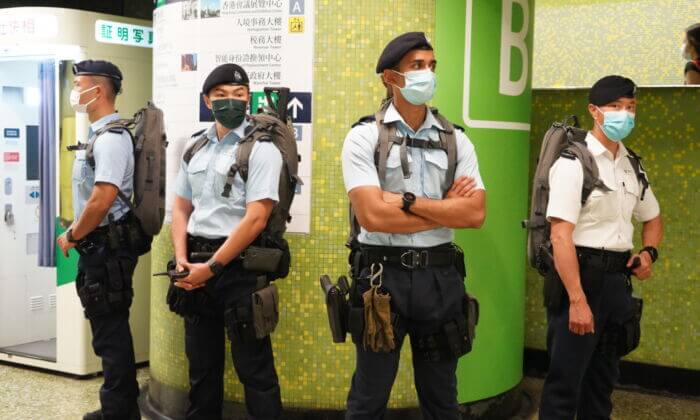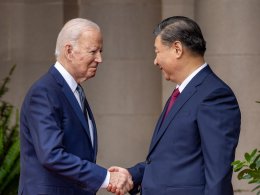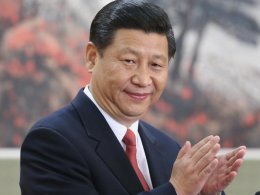China’s Ministry of State Security issued new regulations on June 6 to reward citizens for reporting so-called “acts endangering national security” to the authorities. The pro-Beijing Hong Kong government simultaneously rolled out a “Counter-Terrorism Reporting Hotline” and encouraged Hongkongers to “provide clues on terrorism-related crimes.”
The cash reward for snitchers in Hong Kong can be as high as HK$800,000. Analysts believe that the ruling Chinese Communist Party (CCP) is resorting to methods of social control it used in communist dictator Mao Zedong’s Cultural Revolution to divide Hong Kong society.
The counter-terrorism reporting hotline replaces the former anti-violence hotline, which was established by authorities in the midst of the 2019 anti-government protests.
“Apart from violent acts, the public may also report suspected terrorism-related activities around them,” the police said in a statement published on June 7.
Leung Wai-kee, senior superintendent of the inter-departmental Counter-Terrorism Task Force, said in a press conference at the time that a reward system similar to Hong Kong’s “Good Citizen Award” and “Anticrime Reward” program will soon be set up. For any informant who has provided critical assistance to the government, the cash reward will be issued after the criminal is prosecuted.
Currently, the “Good Citizen Award” offers a bonus of HK$4,000 ($509), and the bounty for the “Anticrime Rewards” is up to HK$80,000 ($10,200) if a murder case is involved.
This so-called “spot and report” campaign has adopted slogans like “an all-people’s war against terrorism” and “report suspicious activities as soon as you spot one.” The hotline will also support SMS and has a WeChat reporting feature.
As for how the public should identify suspicious persons, Leung said that there are no specific criteria, but people can make a judgment based on whether the target person dresses or behaves unusually, or whether there is a reasonable explanation for the person to enter a specific place.
Hong Kong police claimed that the anti-violence reporting hotline launched during the anti-extradition protests received more than 1.34 million reports by the end of May 2022. In addition, after the implementation of the Hong Kong National Security Law by Beijing in June 2020, the city’s National Security Division Reporting Hotline was established, which police say received more than 200,000 reports by November last year.
Chung Kim-wah, deputy CEO of the Hong Kong Public Opinion Research Institute (HKPORI), told Voice of America in a recent interview that he believes the Hong Kong government’s intention is to turn Hong Kong into a society of mutual surveillance, which will break the mutual trust and harmony between Hong Kong people.
The authorities are trying to intimidate Hongkongers so they dare not criticize the local government or the CCP as they did before, even in private, Chung said.
In a commentary that Chung wrote for the Chinese-language Epoch Times on June 6, he pointed out that of the more than 100 people prosecuted under Beijing’s National Security Law, the vast majority have been merely pro-democracy politicians. Yet some of them were prosecuted for “rioting” and “incitement.”
“They just wanted to hold the government accountable and their protests were an act in response to government brutality. They have no guns, no cannons, equipped with only masks and umbrellas, and their only action was shouting slogans. How on earth can they endanger national security?” Chung wrote.
Speaking of the CCP’s “divide and conquer” tactic, current affairs commentator Ji Da believes that Hong Kong’s high-quality civil service system is one of the main targets.
Ji told The Epoch Times that Hong Kong’s civil service system is world-class, and its 300,000 civil servants are the cornerstone of the Hong Kong society—one of the major factors contributing to Hong Kong’s prosperity. However, the CCP regards them as a thorn in its side, calling them “harmful British remnants in Hong Kong.”
“In the past, the CCP could not easily sway this group of people, because they have their own values,” Ji said. “Now the CCP is trying to divide them in every possible way.”
Ji also pointed out that the so-called counter-terrorism reporting in Hong Kong today is precisely inherited from the CCP’s Cultural Revolution. It’s adopted methods such as people secretly reporting on each other, provoking the public to fight against one another, to divide and conquer Hongkongers one by one.
“The CCP has not only destroyed the traditional culture of Hong Kong, but also achieved its purpose of turning Hong Kong citizens into immoral individuals. The regime has successfully implanted its party culture in mainland China for decades, and it is now bringing this wicked party culture to Hong Kong,” Ji said.










